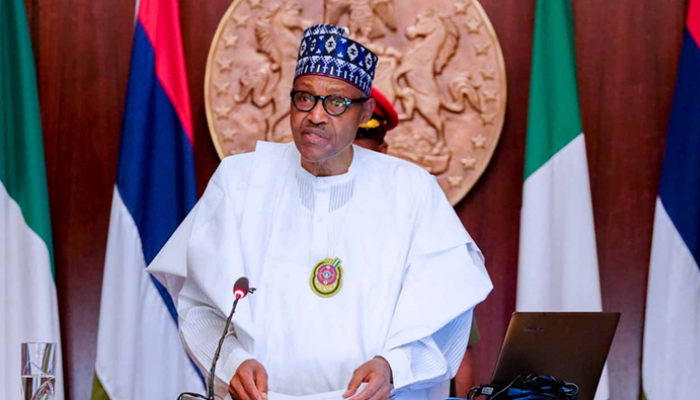Following criticisms by many over his failure to address Nigerians since the country recorded its firts COVID-19 case about a month ago, President Muh
Following criticisms by many over his failure to address Nigerians since the country recorded its firts COVID-19 case about a month ago, President Muhammadu Buhari finally addressed the nation on the COVID-19 pandemic and the efforts his government is taking to tackle it.
Here are ten important things to take away from his address to Nigerians.
- Hundreds of adhoc staff have been recruited in Lagos and Abuja, to man our call centers and support tracing and testing efforts on suspected COVID-19 cases.
- All state governments to nominate doctors and nurses who will be trained by the NCDC and Lagos State Government on tactical and operational response to the virus in case it spreads to other states. This training will also include medical representatives from our armed forces, paramilitary and security and intelligence agencies.
- All movements in Lagos and the FCT will cease for an initial period of 14 days with effect from 11pm on Monday, 30th March 2020. This restriction will also apply to Ogun State due to its close proximity to Lagos and the high traffic between the two States. All citizens in these areas are to stay in their homes. Travel to or from other states should be postponed. All businesses and offices within these locations should be fully closed during this period so as to identify, trace and isolate all individuals that have come into contact with confirmed cases. We will ensure the treatment of confirmed cases while restricting further spread to other States.
- This no movement order does not apply to hospitals and all related medical establishments as well as organizations in health care related manufacturing and distribution. Commercial establishments such as; food processing, distribution and retail companies; petroleum distribution and retail entities; power generation, transmission and distribution companies; and private security companies are also exempted. Although these establishments are exempted, access will be restricted and monitored. Workers in telecommunication companies, broadcasters, print and electronic media staff who can prove they are unable to work from home are also exempted.
- All seaports in Lagos shall remain operational in accordance with the guidelines issued earlier. Vehicles and drivers conveying essential cargoes from these Ports to other parts of the country will be screened thoroughly before departure by the Ports Health Authority. Vehicles conveying food and other essential humanitarian items into these locations from other parts of the country will also be screened thoroughly before they are allowed to enter these restricted areas.
- Movements of all passenger aircrafts, both commercial and private jets, are hereby suspended. Special permits will be issued on a need basis.
- People in Lagos and Abuja whose livelihood will be affected by these restrictive measures, we shall have relief materials deployed to them. Also, the school feeding program will be sustained during this period while Internally displaced persons will also receive two months of food rations in the coming weeks.
- A three-month repayment moratorium for all TraderMoni, MarketMoni and FarmerMoni loans will be implemented with immediate effect as well as to all Federal Government funded loans issued by the Bank of Industry, Bank of Agriculture and the Nigeria Export Import Bank. The vulnerable will have cash transfers to them for the next two months to be paid immediately.
- All Stadia, Pilgrims camps and other facilities to be converted to isolation centers and makeshift hospitals.
- All contributions and donations will be coordinated and centralized to ensure efficient and impactful spending via the Presidential Task Force, the central coordinating body on the COVID-19 response.
